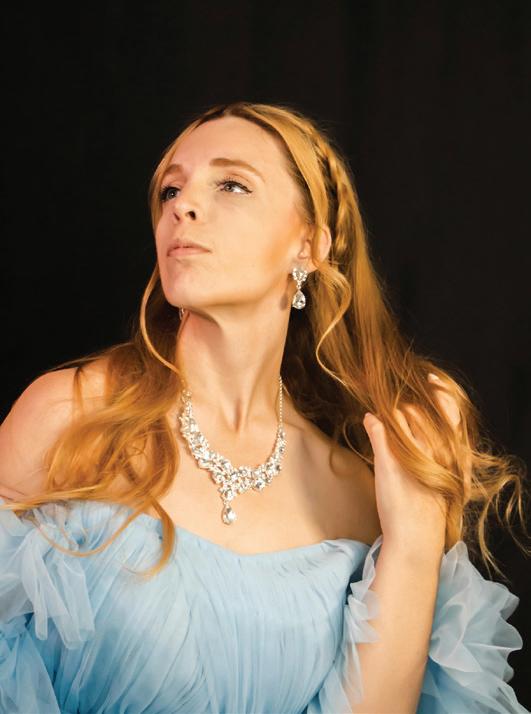
2 minute read
THE DECEPTIVE WORLD OF PAGEANTS: WHAT I LEARNED ON THE ROAD TO MISS CANADA 2025
by Jacquoline Martin
When most people think of beauty pageants, they imagine sparkling gowns, perfect bodies, and competition based purely on physical appearance. That was exactly the impression I had when I first stepped into the pageant world. As someone who recently entered this realm, I believed what many still do—that to be successful, you had to be one specific size, and that “one size” fit all. The reality turned out to be quite different.
Eight months before the Miss Canada 2025 competition, I began mentally preparing myself for what I thought was the most important part: dieting. I was slightly embarrassed about not fitting the traditional mold I had in mind. So, I made a plan. I’d cut carbs, hit the gym harder, and try to shrink myself into the version of “pageant-ready” that I had absorbed through years of cultural messaging.
But then life happened. Between juggling work commitments, community service, and the neverending demands of pageant fundraising, my diet plan quickly fell apart. No matter how good my intentions were, I stayed at the same weight—unchanged and, honestly, frustrated. The stress didn’t help either. There were moments when I felt I had failed before I even arrived.
What surprised me most, though, was what happened after I got to the competition.
The moment I walked into the venue, all of my assumptions started to unravel. The room was filled with women—and others who identify as women— of all body types, backgrounds, and ages. This wasn’t the cookie-cutter image I had in my head. It was diverse, welcoming, and surprisingly real.
You begin to realize quickly that pageants, at least in Canada, aren’t about achieving some impossible aesthetic ideal. Instead, they’re about creating space for connection, for sisterhood. At the various events and functions leading up to the big night, the atmosphere wasn’t catty or cutthroat—it was deeply supportive. People shared advice, traded stories, and encouraged each other with genuine warmth.
Sure, everyone wanted to win. But what stood out was that most of us forgot about the crown during our time together. We were too busy having meaningful conversations—about career dreams, social impact projects, personal struggles, and triumphs. I found myself in rooms full of women who had launched nonprofits, advocated for mental health, led local initiatives, and poured themselves into causes that mattered. These were not just beauty queens. These were community leaders.
Through this experience, I learned that the real measure of success in a Canadian pageant isn’t how well you fit into a dress—it’s how deeply you’re connected to your community, and how authentically you show up as yourself. The judges aren’t looking for perfection; they’re looking for passion, purpose, and presence. They want to see someone who’s doing the work—not just on the outside, but within and around them.
Participating in Miss Canada didn’t transform my body. It transformed my mindset. I stopped obsessing over what I wasn’t, and started appreciating everything I already was—a woman with goals, with a voice, and with a platform that mattered.
There’s still a lot of misconception surrounding pageantry, and in many ways, the industry still has progress to make. But at least where I stood, it wasn’t about being the skinniest, the tallest, or the most conventionally attractive. It was about being the most engaged, the most authentic, and the most committed to making a difference.
The pageant world has changed. It’s no longer just about the crown—it’s about what you do with it. And for many of us, the real prize isn’t the title. It’s the sisterhood, the self-discovery, and the powerful reminder that you are enough, just as you are.
Jacquoline is a passionate, award-winning community advocate with over a decade of dedicated service. She has contributed to various organizations, including the CMHA and BC Epilepsy Society. Her work reflects a deep commitment to supporting and uplifting her community.










